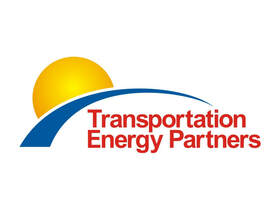2023 Clean Fuels Federal Policy Agenda
Stabilize Gas Prices, Improve Air Quality, Create Jobs
Three quarters of the 20 million barrels of petroleum consumed by America each day is used for transportation. Transportation is the nation’s largest source of greenhouse emissions, and the largest source of local air pollution and largest energy expense in many communities. Even though the U.S. is now the world’s largest energy producer, we remain vulnerable to the actions of foreign governments that do not share our interests.
American ingenuity and technology innovation have enabled vehicles using electricity, natural gas, propane, biodiesel, ethanol, and hydrogen to begin to make their way into the marketplace. According to the Department of Energy, there are more than 3 million alternative fuel vehicles in use in the United States and 64,000 alternative fueling stations. Yet this represents only a very small fraction of the total American fleet.
American ingenuity and technology innovation have enabled vehicles using electricity, natural gas, propane, biodiesel, ethanol, and hydrogen to begin to make their way into the marketplace. According to the Department of Energy, there are more than 3 million alternative fuel vehicles in use in the United States and 64,000 alternative fueling stations. Yet this represents only a very small fraction of the total American fleet.
The United States must aggressively expand our use of domestically produced alternatives to petroleum fuel if we are to stabilize gasoline prices, improve air quality and create more American jobs.
Now is the time for Congress to continue the nation’s investment in clean American transportation fuels and vehicles by acting immediately on the following urgent policy matters:
- Increase federal funding in FY 2024 for the Department of Energy (DOE) Clean Cities alternative fuel deployment program and the U.S. EPA Diesel Emission Reduction Grants.
- Authorize the DOE Clean Cities Program.
- Preserve the Renewable Fuel Standard (RFS).
Ensure Adequate Federal Funding in FY 2024 for Key Clean Transportation Programs
Congress should support funding for the following federal programs, which advance the development and deployment of clean transportation technologies:
- Congress should provide $75 million for the DOE Clean Cities program, including $25 million for Coalitions and $40 million in competitive grants for new alternative fuel and vehicle deployment solutions.
- Congress should provide $150 million for the EPA Clean Diesel (DERA) Grants program, which has created jobs and improved air quality in hundreds of communities across the U.S.
Authorize the DOE Clean Cities Program
The Clean Cities program has been one of the nation’s most effective tools in promoting the use of domestic fuel sources, improving local air quality, and deploying advanced vehicle technologies. Congress should reintroduce and pass legislation that would institutionalize the program and enable it to be even more effective in leveraging public-private partnerships to advance cleaner fuels and vehicles.
Preserve the Renewable Fuel Standard (RFS)
Congress should reject efforts to undermine or eliminate the RFS, which sets annual standards for production and use of conventional and advanced biofuels. Congress should also encourage the EPA to continue growing RFS volumes to ensure that we diversify the transportation fuels market with clean alternatives that are creating jobs, cutting pollution, and reducing our dependence on foreign oil. Renewable fuels have helped reduce oil imports by 25 percent since 2000 and now provide 10 percent of America’s on-road transportation needs. The RFS has eliminated 1 billion tons of greenhouse gas emissions. The RFS is stimulating impressive growth in Renewable Natural Gas and Advanced Biofuels such as biodiesel, which are poised for significant growth under a stable RFS.
Investment in Alternative Fuels Creates American Jobs
In addition to enhancing our energy security, the clean transportation industry is also critical to our economic growth and global competitiveness.
- There are now about 2.5 million plug-in electric vehicles on the road in the U.S. The global market for lithium-ion batteries will grow to $194 billion by 2028 and annual revenue from the infrastructure charging sector is projected to grow to $200 billion by 2031.
- Biodiesel has grown into a 2.8 billion gallon per year industry with 75 plants across the U.S. supporting more than 65,000 jobs and providing $17 billion in economic activity.
- There are more than 200,000 propane-powered vehicles on America’s roads, including a fleet of about 20,000 propane-powered school buses that transport 1.2 million children to school each day.
- The U.S. is the number one producer of natural gas in the world, and the industry provides 4.1 million American jobs. About 175,000 natural gas vehicles operate on America’s roads today.
- Over the last five years, Renewable Natural Gas (RNG) use as a transportation fuel has increased dramatically. There are now 250 RNG facilities operating in the U.S. that have created more than 38,000 operational and construction jobs. Another 240 new plants are under development, and they will create an additional 35,000 new jobs.
Action Alert!
There are currently no action alerts. Check back soon to learn more about how you can make sure your voice is heard.

